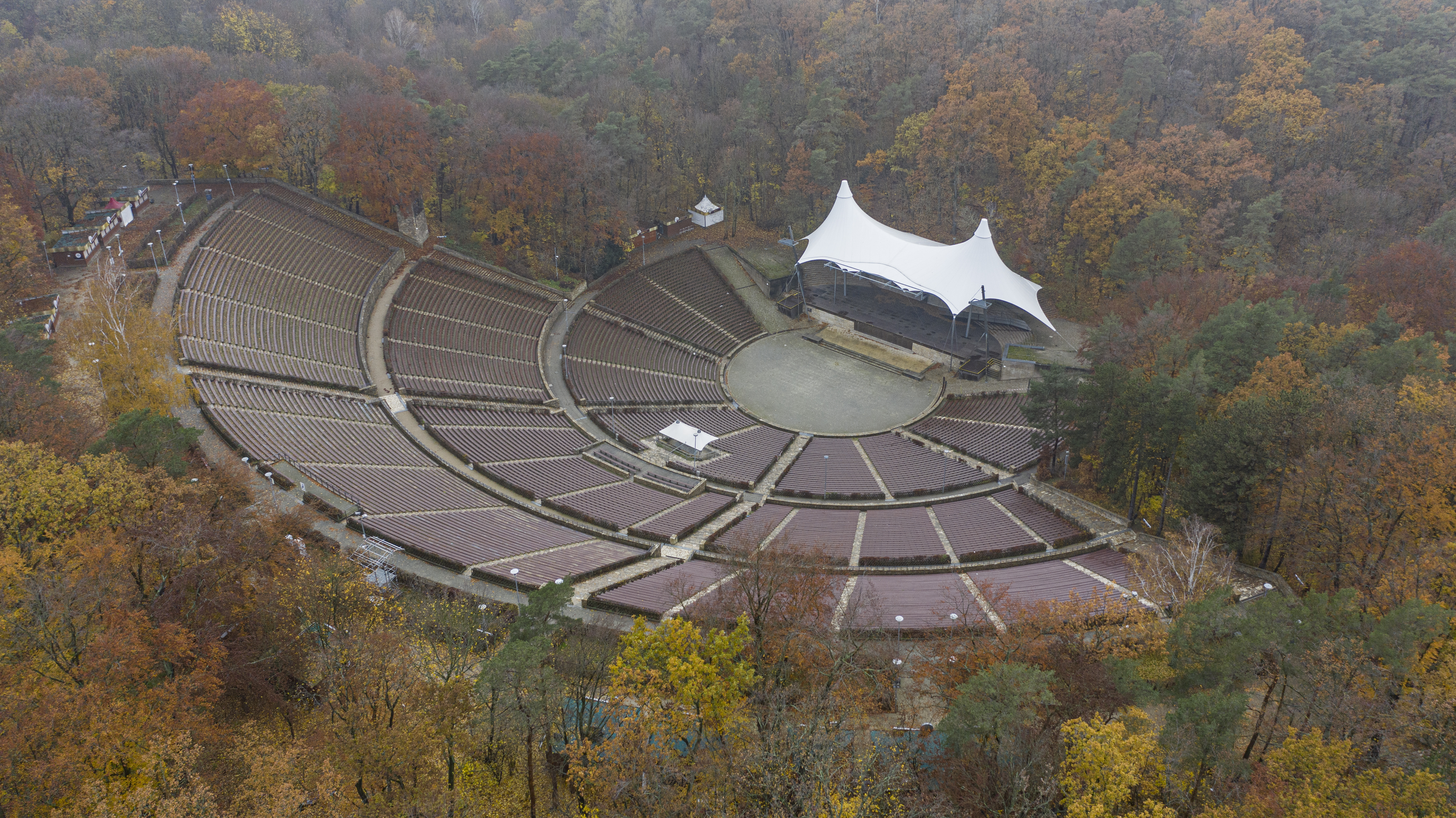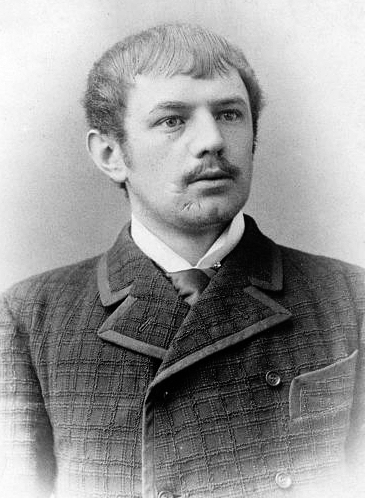|
Waldbühne
The Waldbühne (''Woodland Stage'' or ''Forest Stage'') is an amphitheatre at Olympiapark Berlin in Berlin, Germany. It was designed by German architect Werner March in emulation of a Greek theatre and built between 1934 and 1936 as the Dietrich-Eckart-Freilichtbühne (Dietrich Eckart Open Air Theater), a Nazi Thingspiele, Thingplatz, and opened in association with the 1936 Summer Olympics. Since World War II it has been used for a variety of events, including boxing matches, film showings and classical and rock concerts. It seats more than 22,000 people. The venue is located off Friedrich-Friesen-Allee just northeast of Glockenturmstraße. Nazi era The theatre was built as part of the Olympic complex on the request of Propaganda Minister Joseph Goebbels. March made use of a natural ravine and modelled the theatre on ancient Greek amphitheatres.Paul Ortwin Rave and Hinnerk Scheper, eds., rev. Irmgard Wirth, ''Die Bauwerke und Kunstdenkmäler von Berlin: Stadt und Bezirk Charlott ... [...More Info...] [...Related Items...] OR: [Wikipedia] [Google] [Baidu] |
CTS Eventim
CTS Eventim is a German company in the leisure-events market, with ticketing and live entertainment, headquartered in Bremen. It is one of the 50 companies comprising the MDAX index. History CTS Computer Ticket Service GmbH was founded by Munich-based concert promoters Marcel Avram and Matthias Hoffmann on 4 November 1989. It was acquired in 1996 by Klaus-Peter Schulenberg. Schulenberg took the company partially public on 1 February 2000 on the Frankfurt stock exchange. That same year, the company entered into the live entertainment market with the partial acquisitions of several German concert promoters, such as Marek Lieberberg Konzertagentur, Peter Rieger Konzertagentur, Semmel Concerts, Argo Konzerte, FKP Scorpio, and Dirk Becker Entertainment. Over the years, CTS Eventim would acquire several other ticketing and live entertainment companies, including Austrian promoter ''Barracuda Music'' (71% in 2017), Italian promoters Vertigo (51% in 2017) and Friends & Partners (60% in ... [...More Info...] [...Related Items...] OR: [Wikipedia] [Google] [Baidu] |
Olympiapark Berlin
Olympiapark Berlin (German for ''Berlin Olympic Park''), previously the () and the (), is a sports and entertainment complex located in Berlin, Germany. The complex served as the Olympic Park of the 1936 Summer Olympics.1936 Summer Olympics official report. Volume 1. pp. 141–9, 154–62. Accessed 17 October 2010. History Early history "A people's park" The area in the Grunewald (forest), Grunewald had been promised to the people of Berlin as "a people's park" by Wilhelm II, German Emperor, Emperor Wilhelm II in 1904. Due to this, when the later signed a lease for a horseracing track, they had to agree that their land would also host "general sports functions"Grunewald Race Course A horse ...[...More Info...] [...Related Items...] OR: [Wikipedia] [Google] [Baidu] |
Adolf Wamper
Adolf Wamper (23 June 1901 – 22 May 1977) was a German sculptor. Most of his works were figural, with some in an abstract realist style. During the 1930s he produced monumental sculptures for the Nazi régime; after World War II he taught at the Folkwang University of the Arts. Early life and education Adolf Wamper was born in Grevenberg in what is now the town of Würselen, one of five sons raised by their mother, Anna Maria, after their father, Franz Josef Wamper, died in a mining accident in 1907. He was raised Roman Catholic. After finishing school he trained in business and went to work for the Eschweiler Bergwerks-Verein, a leading coal producer. He studied drawing and in 1923 enrolled in the ''Handwerker- und Kunstgewerbeschule'', a school of applied arts in Aachen. He also attended classes for two years at the Aachen Technical University, now RWTH Aachen University. From Aachen he transferred to the Kunstakademie Düsseldorf, where he passed his qualifying examinatio ... [...More Info...] [...Related Items...] OR: [Wikipedia] [Google] [Baidu] |
Dietrich Eckart
Dietrich Eckart (; 23 March 1868 – 26 December 1923) was a German '' völkisch'' poet, playwright, journalist, publicist, and political activist who was one of the founders of the German Workers' Party, the precursor of the Nazi Party. Eckart was a key influence on Adolf Hitler in the early years of the Party, the original publisher of the party newspaper, the '' Völkischer Beobachter'' ("Folkist Observer"), and the lyricist of the first party anthem, " Sturmlied" ("Storming Song"). He was a participant in the failed Beer Hall Putsch in 1923 and died on 26 December of that year, shortly after his release from Landsberg Prison, of a heart attack. Eckart was elevated to the status of a major thinker upon the establishment of Nazi Germany in 1933. He was acknowledged by Hitler to be the spiritual co-founder of Nazism and "a guiding light of the early National Socialist movement." Early life Eckart was born on 23 March 1868 in Neumarkt, about southeast of Nuremberg in the King ... [...More Info...] [...Related Items...] OR: [Wikipedia] [Google] [Baidu] |
Thingspiele
A ''Thingspiel'' (plural ''Thingspiele'') was a kind of multi-disciplinary outdoor theatre performance which enjoyed brief popularity in pre-war Nazi Germany during the 1930s. A Thingplatz or Thingstätte was a specially-constructed outdoor amphitheatre built for such performances. About 400 were planned, but only about 40 were built between 1933 and 1939. History The idea of the Thingspiel movement was that the Volk would gather for völkisch meetings and for theatre and propaganda presentations. A ''Thing'' was an ancient judicial as well as social gathering of Germanic peoples, in an outdoor setting. The ''Thing'' sites were to be built as much as possible in a natural setting, incorporating rocks, trees, bodies of water, ruins, and hills of some historical or mythic significance.Robert R. Taylor, ''The Word in Stone: The Role of Architecture in the National Socialist Ideology'', Berkeley: University of California, 1974, , pp. 213–14. The term ''Thingspiel'' was fir ... [...More Info...] [...Related Items...] OR: [Wikipedia] [Google] [Baidu] |
Olympic Stadium (Berlin)
The Olympiastadion (), also known in English as the Berlin Olympic Stadium or simply the Olympic Stadium, is a sports stadium at Olympiapark Berlin in Berlin, Germany. It was originally designed by Werner March for the 1936 Summer Olympics. During the Olympics, the record attendance was thought to be over 100,000. Since renovations in 2004, the Olympiastadion has a permanent capacity of 74,475 seats and is the largest stadium in Germany for international football matches. The Olympiastadion is a UEFA category four stadium. Besides its use as an athletics stadium, the arena has built a footballing tradition. Since 1963, it has been the home of the Hertha BSC. It hosted three matches in the 1974 FIFA World Cup. It was renovated for the 2006 FIFA World Cup, when it hosted six matches, including the final. The DFB-Pokal final match is held each year there since 1985. The Olympiastadion Berlin served as a host for the 2011 FIFA Women's World Cup as well as the 2015 UEFA Champion ... [...More Info...] [...Related Items...] OR: [Wikipedia] [Google] [Baidu] |
Frankenburger Würfelspiel
The ''Frankenburger Würfelspiel'' ( Frankenburg Dice Game) is a Thingspiel (a Nazi-era multi-disciplinary open-air drama) by Eberhard Wolfgang Möller based on the historical event of the same name in Frankenburg am Hausruck, Upper Austria. It received its première in Berlin in association with the 1936 Summer Olympics and the inauguration of the Dietrich-Eckart-Bühne, the Berlin ''Thingstätte'' which is now the Waldbühne (Forest Stage), and was the most successful Thingspiel. This Thingspiel has nothing in common with the Frankenburg play and re-enactement started in 1925, and still running, of the dramatic event that counts with more than 400 amateur actors - among them numerous descendants of those convicted at the time, which has become one of the cultural and touristic attraction of Frankenburg am Hausruck market town. Background In May 1625, during the Counter-Reformation, Baron von Herberstorff, Governor of Upper Austria and acting on behalf of the Holy Roman Empero ... [...More Info...] [...Related Items...] OR: [Wikipedia] [Google] [Baidu] |
1936 Summer Olympics
The 1936 Summer Olympics (), officially the Games of the XI Olympiad () and officially branded as Berlin 1936, were an international multi-sport event held from 1 to 16 August 1936 in Berlin, then capital of Nazi Germany. Berlin won the bid to host the Games over Barcelona on the 29th IOC Session on 26 April 1931. The 1936 Games marked the second and most recent time the International Olympic Committee gathered to vote in a city bidding to host those Games. Later rule modifications forbade cities hosting the bid vote from being awarded the games. To outdo the 1932 Summer Olympics, 1932 Los Angeles Games, Adolf Hitler had Olympiastadion (Berlin), a new 100,000-seat track and field stadium built, as well as six gymnasiums and other smaller arenas. The Games were the first to be Fernsehsender Paul Nipkow, televised, with radio broadcasts reaching 41 countries.Rader, Benjamin G. "American Sports: From the Age of Folk Games to the Age of Televised Sports", 5th ed. Filmmaker Leni Ri ... [...More Info...] [...Related Items...] OR: [Wikipedia] [Google] [Baidu] |
Hercules (Handel)
''Hercules'' ( HWV 60) is a ''Musical Drama'' in three acts by George Frideric Handel, composed in July and August 1744. The English language libretto was by the Reverend Thomas Broughton, based on Sophocles's '' Women of Trachis'' and the ninth book of Ovid's ''Metamorphoses''. Performance history ''Hercules'' was first given at the King's Theatre in London on 5 January 1745 in concert style. There were only two performances in the original run. The role of Lichas was written first as a small one for tenor, but it was greatly expanded before the premiere to provide Susannah Cibber with six airs. She was too ill to sing on the first night, and the music was either omitted or redistributed on that occasion. She sang in the second performance on 12 January. The music for the chorus "Wanton God" and the air "Cease, ruler of the day" was never given in this opera: the latter was adapted for the final chorus of ''Theodora''. The work was a total failure and caused Handel to susp ... [...More Info...] [...Related Items...] OR: [Wikipedia] [Google] [Baidu] |
Gluck
Christoph Willibald ( Ritter von) Gluck (; ; 2 July 1714 – 15 November 1787) was a composer of Italian and French opera in the early classical period. Born in the Upper Palatinate and raised in Bohemia, both part of the Holy Roman Empire at the time, he gained prominence at the Habsburg court in Vienna. There he brought about the practical reform of opera's dramaturgical practices for which many intellectuals had been campaigning. With a series of radical new works in the 1760s, among them '' Orfeo ed Euridice'' and '' Alceste'', he broke the stranglehold that Metastasian ''opera seria'' had enjoyed for much of the century. Gluck introduced more drama by using orchestral recitative and cutting the usually long da capo aria. His later operas have half the length of a typical baroque opera. The strong influence of French opera encouraged Gluck to move to Paris in November 1773. Fusing the traditions of Italian opera and the French (with rich chorus) into a unique synthesis ... [...More Info...] [...Related Items...] OR: [Wikipedia] [Google] [Baidu] |
Orfeo Ed Euridice
(; French: '; English: ''Orpheus and Eurydice'') is an opera composed by Christoph Willibald Gluck, based on the myth of Orpheus and set to a libretto by Ranieri de' Calzabigi. It belongs to the genre of the '' azione teatrale'', meaning an opera on a mythological subject with choruses and dancing. The piece was first performed at the Burgtheater in Vienna on 5 October 1762, in the presence of Empress Maria Theresa. ''Orfeo ed Euridice'' is the first of Gluck's "reform" operas, in which he attempted to replace the abstruse plots and overly complex music of ''opera seria'' with a "noble simplicity" in both the music and the drama. The opera is the most popular of Gluck's works, and was one of the most influential on subsequent German operas. Variations on its plot—the underground rescue mission in which the hero must control, or conceal, his emotions—can be found in Mozart's ''The Magic Flute'', Beethoven's ''Fidelio'', and Wagner's ''Das Rheingold''. Though originally s ... [...More Info...] [...Related Items...] OR: [Wikipedia] [Google] [Baidu] |
Deutscher Kunstverlag
The Deutscher Kunstverlag (DKV) is an educational publishing house with offices in Berlin and Munich. The publisher specializes in books about art, cultural history, architecture Architecture is the art and technique of designing and building, as distinguished from the skills associated with construction. It is both the process and the product of sketching, conceiving, planning, designing, and construction, constructi ..., and historic preservation. History Deutscher Kunstverlag was founded in 1921 in Berlin. Founders were the publishing companies Insel Verlag, E. A. Seemann, Deutsche Verlags-Anstalt, Julius Hoffmann, G. Grote, Julius Bard, and Walter de Gruyter, as well as the bank . Some book series appeared already in 1925, which to this day still partially determine the publishing profile. In addition to scientific publications, the Deutscher Kunstverlag publishes art books and exhibition catalogs. After the Second World War, the publisher moved its hea ... [...More Info...] [...Related Items...] OR: [Wikipedia] [Google] [Baidu] |







